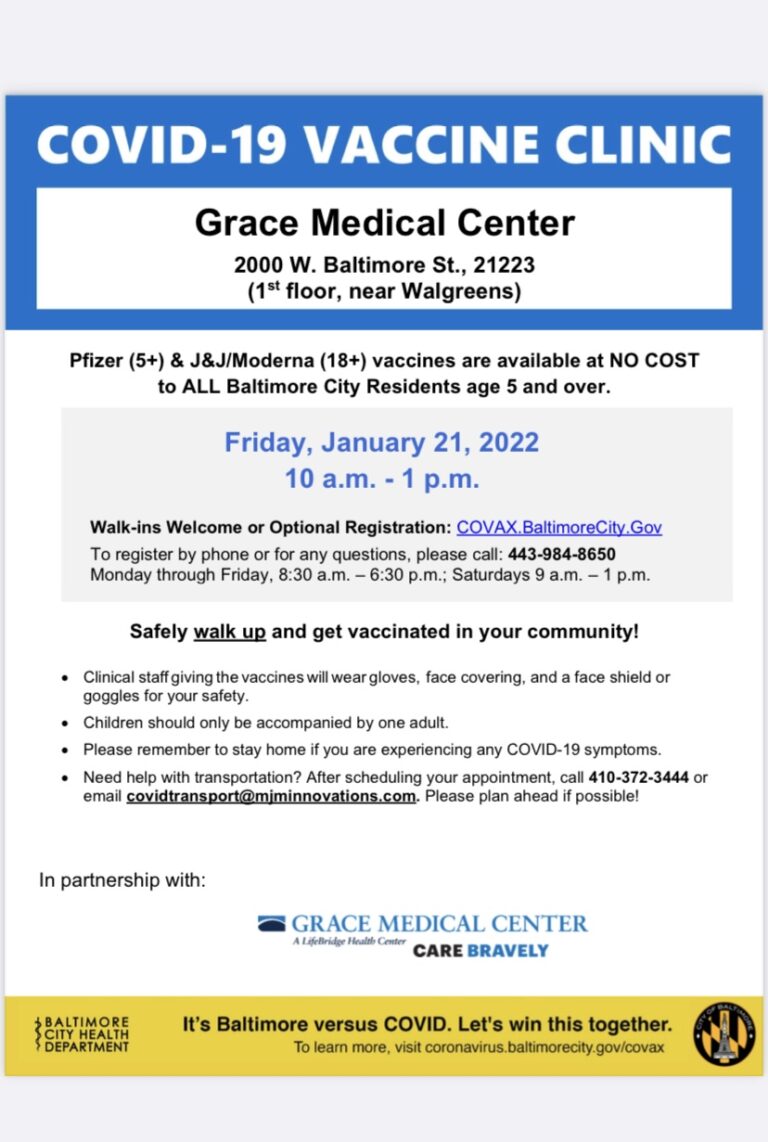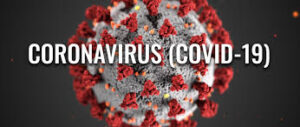
Microchips and mandatory shots: Don’t fall for these coronavirus vaccine myths
Fears about the coronavirus vaccine abound, but most of them aren’t valid.
1. The COVID-19 vaccine will give you COVID-19
No, the vaccine will not give you the disease, says Dr. Thomas J. Duszynski, the director of epidemiology education at Indiana University. It’s just like the flu vaccine can’t give you the flu. And you can’t get HPV from the HPV vaccine, and so on. However, because of the way vaccines work, people might have a false perception that a vaccine can give them the virus it’s supposed to protect against, Dr. Dusznynksi says.
“Some people may believe that as soon as you are vaccinated you are protected from the disease and that is not correct. When you get vaccinated, we have to wait for something called sero-conversion,” he explains. During sero-conversion, your body recognizes the vaccine contents as an invader and begins to ramp up its attack on the invader.
This eventually leads to the development of antibodies that protect you from the virus. This process can take several weeks, so if you get the COVID-19 vaccine and shortly thereafter are exposed to the virus, you could still develop the illness — leading to the perception that you got the disease from the vaccination, which is incorrect, Dr. Dusznynksi says.
2. The COVID-19 vaccine will be mandatory for everyone, no exceptions

This is false. Dr. Anthony Fauci, director of the National Institute of Allergy and Infectious Diseases, has already stated that mandatory vaccination would be “unenforceable and not appropriate.”
However, Dr. Robert Quigley, senior vice president and global medical director of International SOS, a health risk mitigation firm, says that local governments may exercise their right to enforce vaccination.
“In previous times of public health crises, you’ll find that states have exercised their legal authority to introduce a vaccine mandate that requires people who live in that state to get vaccinated,” he says. “So yes, once a COVID-19 vaccine is available, your local government can require that those who live in the state be vaccinated, but it will not become a national mandate.” States that do this may punish noncompliance with a monetary fine.
Individual employers, schools and school districts, sports teams and other institutions may require mandatory vaccination for people to attend or involve themselves.
3. The COVID-19 vaccine will be forcefully administered by the military
While the military does have a role to play in the COVID-19 pandemic and disaster response, the Department of Defense has made it clear that it is a “logistics-only” role.
“The COVID-19 vaccine will not be forcefully administered by the military against anyone’s will,” Dr. Quigley says. “The DoD will have a role in assisting with distribution of the COVID-19 vaccines, and distribution only.” This means the military will help source, acquire and deliver items like needles, syringes, swabs and other items needed to safely and effectively develop and administer vaccines.
4. It’s impossible to make an effective vaccine in just one year

It’s normal and valid to worry about the speed at which the development of COVID-19 vaccines are progressing. However, just because the vaccine has been fast-tracked doesn’t mean it won’t work.
“Vaccine making typically takes several years,” Dr. Roshni Mathew, pediatric infectious diseases physician and the associate medical director for infection prevention and control at Stanford Children’s Health, says.
“In the case of COVID-19 vaccines, several steps that typically occur in sequence, occurred in parallel. The safety and efficacy safeguards, however, are all still in place and vaccines will not be approved for civilian use till they meet all the required standards,” says Mathew.
5. The COVID-19 vaccine is a microchip so the government can track you
No. The COVID-19 vaccine will not contain any sort of microchip or tracking device implemented by the government. The COVID-19 vaccine is about preventing more cases, hospital stays and deaths.
The vaccine syringes will likely contain something called an RFID microchip from medical solutions company ApiJect Systems America, which will allow public health agencies to collect information about when and where the vaccine was administered, but that microchip wouldn’t be injected into your body.
Plus, if the government wanted to track you, they could just use your social security number, your Facebook data, your cellphone usage, your home video security system or your mortgage loan information.
6. The COVID-19 vaccine will make you more susceptible to other illnesses

Vaccines historically do not result in immune suppression that leaves people susceptible to various diseases, Dr. Quigley says. “The infection itself may suppress the immune system of the host and negatively impact the host’s ability to stimulate antibody production,” he explains. “The vaccines, on the other hand, should be able to boost adaptive immunity,” which refers to immunity acquired after exposure to a pathogen like the SARS-CoV-2 virus.
Additionally, the COVID-19 vaccines in development in the US do not contain live viruses that could make you sick, Dr. Mathew says. “The vaccines simply cause the body to recognize the virus protein so the body’s immune system can develop a response to it.”
7. The vaccine is a bigger risk than contracting the illness; we should let the virus run its course naturally
Definitely not, says Dr. Tom Kenyon, a former CDC director and Project HOPE’s chief health officer. “COVID-19 is on track to become the leading infectious disease killer in the world in 2020, exceeding the annual number of deaths from HIV, tuberculosis, and malaria,” he says. “This is staggering.”
Allowing the virus to “run its course,” as advocates of herd immunity say, will require hundreds of millions of cases — just in the US.
“It will take time, but to bring this pandemic to an end will require us all to unite and be vaccinated, as well as continue to follow recommendations from the scientists to wear a mask, keep a safe distance from others and to wash our hands,” Dr. Kenyon says.
8. The COVID-19 vaccine will completely stop the pandemic

Dr. Quigley puts it plainly: “This is not true.” While a vaccine is the best way to prevent more people from contracting COVID-19, reduce hospital stays and minimize COVID-19 deaths, it’s naive to think the production of a vaccine will automatically end the pandemic, he says.
“Vaccines seek to create a world where we can return to our daily lives through immunity,” Dr. Quigley says, but several challenges come with vaccines — such as encouraging the public to actually get vaccinated.
Plus, even if the entire population were to agree to vaccination, it’s not as if every single person could get vaccinated simultaneously. “The vaccine is one strategy to reduce the risk of transmission and acquisition of infection,” Dr. Mathew says. “Since the vaccine is not 100% efficacious, all the other measures [such as mask-wearing] would need to be in place till a substantial number of people are vaccinated.”
Editor’s note, Dec. 7 2020: This story has been updated to clarify that in order to reach herd immunity of the coronavirus in the US, we would need to have hundreds of millions of cases, not deaths.
The information contained in this article is for educational and informational purposes only and is not intended as health or medical advice. Always consult a physician or other qualified health provider regarding any questions you may have about a medical condition or health objectives.

About COVID -19
Areas of the state are starting to re-open. To help move the process along, remember that wearing your mask in public places and practicing social distancing is encouraged. Continuing to wash or sanitize your hands, avoiding touching your face, and staying at home when you are feeling sick are other actions you can take to help manage transmission. Although COVID-19 cases are trending down at this time, it is still possible to spread the virus. Be healthy, be safe, and use the available resources to meet your needs.
https://governor.maryland.gov/coronavirus/
MDH – Office of Minority Health and Health Disparities
To increase the response to COVID-19, we’d like to have all of our community partners to share this PSA with their stakeholders (mp4 format – in both English and Spanish)
English Version:
https://www.dropbox.com/s/y18bs03dtihe7m7/2013%20MD%20Health%20Covid%2030.mp4?dl=0
Spanish Version:
https://www.dropbox.com/s/4zf0b3bw1ig9arx/2030%20MD%20Health%20Covid%2030%20Spanish.mp4?dl=0
Maryland Department of Labor COVID-19 Layoff Aversion Fund
Additional funding is now available through the Maryland Department of Labor COVID-19 Layoff Aversion Fund, and nonprofits are eligible to apply. Businesses undergoing financial stresses due to the pandemic can apply for up to $50,000 in flexible and customizable funding to maintain their workforce. Applications are currently being accepted and the program will remain open through 30 days after the State of Emergency ends or until funding has been fully exhausted. Learn more.
Harm Reduction Services
Harm reductionists are essential workers alongside other behavioral health treatment and medical providers. The Harm Reduction During COVID-19 video highlights how programs have risen to this expectation through tremendous partnership.
I Want the Kit – free get home testing kits for HIV / STIs: https://www.iwantthekit.org/
Maryland Senior Call Check
Maryland Senior Call Check has same day enrollment. Register online https://aging.maryland.gov/Pages/senior-call-check.aspx or call 1-866-50-CHECK. Please help to disseminate information to older adults 65+ about Senior Call Check. This is a free daily call check in service.
Making Celebrations Safer (if they do include people outside your regular bubble). Among the key recommendations shared by Chase Brexton Health Services include:
- Use a CO2 sensor to monitor the ventilation in a room
- Open windows, even just a small bit, to get a flow of air through the house
- Sit as far away as possible to people who are from another household or support bubble
- Keep bathroom windows open all of the time or the extraction fan on
- Close the toilet lid before you flush
- Use a portable air purifier to remove the virus from the air
- Avoid Christmas carols as singing is known to release a lot more virus particles than talking
- In the kitchen, keep the extractor fan on to ensure additional ventilation
BEMA Needs Assessment Survey
Give feedback about the health and social services in your area – gift card incentive offered for participation.
Contact: keri.geiger@baltimorecity.gov / 443.915.4848